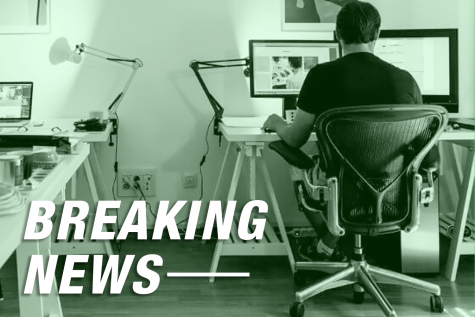College evaluates finances and budgeting, eliminates Columbia Online
May 26, 2020

In the midst of a pandemic now threatening to claim financially-induced as well as human casualties, President and CEO Kwang-Wu Kim announced the closure of Columbia College Chicago Online, which will result in the elimination of positions associated with the program.
In a Tuesday, May 26 email from the Office of the President to faculty and staff, Kim said the decision to cease the program after its current eight-week session concludes in June comes from budgeting pressures due to the coronavirus pandemic and the struggle to find its fit in a challenging market, with “modest” enrollment and revenue growth. It was not immediately clear how many positions will be eliminated.
“The college will continue developing robust, effective course offerings in remote and online formats in its undergraduate and graduate degree programs while remaining committed to the hands-on, in-person instruction that is the hallmark of a Columbia education,” Kim said in the email.
The Columbia College Chicago Online program, which is a non-degree-granting online continuing education division offering certificate programs and courses geared toward working professionals, was launched in 2017, led by Vice Provost of Digital Learning Robert Green, as part of a five-year operating plan, but will now end in the middle of its third year. Kim said the program was projected to be profitable by fiscal year 2022, but the program’s growth “has been more modest than we had hoped and has consistently lagged projections and operating expenditures.”
It may not be the only program at Columbia to face a financial hit in the coming weeks.
Although the college has received a significant number of freshman applications for the Fall semester, according to the email, rates of student recruitment and retention are still undetermined, creating a budgeting challenge for the school as it plans for the year ahead. Kim said the college recognizes “that a portion of our prospective and current student populations may be adversely impacted by the twin public health and economic crises, and that students’ fall attendance intentions are probably less firm than they would ordinarily be at this time of year.”
The college’s senior leadership is currently developing the 2021 fiscal year operating budget to prepare for a range of possible enrollment outcomes.
In the email, Kim said the college is taking steps to reduce “operational expenses wherever possible,” which includes the postponement of summer construction and renovation projects on or around campus, as well as a collegewide hiring freeze.
When on-campus instruction resumes, Kim said the college will cut back on travel and catering expenses, and is already in the process of identifying non-employee cuts in discussion with academic and administrative departments.
The college is also modeling projections for the possibility of a 20% decline in tuition revenue and how detrimental it could be, Kim said at a Tuesday, May 26 online forum for faculty and staff, according to a faculty member who participated.
“When we add all the factors, that decline could be … up to 33% overall revenue decline,” said Senior Vice President for Business Affairs and CFO Jerry Tarrer at the Zoom forum, the first time faculty and staff heard directly from the administration on reopening plans.
While Columbia’s Board of Trustees has shown a readiness to use the college’s cash reserves, or funds set aside, to control the impact of the pandemic, according to the email, Kim said the reserves “are not limitless.”
In the email, Kim said he plans to rely on the rollback of compensation or benefits for top administrators and “highly-paid” employees, before considering more position eliminations.
Kim’s salary is decided by the Board of Trustees, and he decides the salary of top administrators, as reported by the Chronicle February 29. In 2017, Kim was the only Columbia employee to receive a bonus, totaling $42,500, and his total compensation went up 40% from $651,091 to $912,965 that year, which includes his home, car, health care and other benefits.
He also outlined the plan for reopening campus and said more updates will come after the three online forums with faculty and staff focusing on social distancing, classroom capacity and Personal Protective Equipment. Under consideration for the fall return to campus are new elevator etiquette, temperature scanning and mandatory mask wearing policies.
For staff, a return to campus would begin June 26 at the earliest, as part of phase four of Gov. J.B. Pritzker’s five-phase plan. In-person instruction for summer courses will start July 6, with facial covering requirements; summer courses are set to conclude on August 22, and fall courses will begin September 8 with a “blend of in-person and remote instruction,” according to the email.
“As we prepare to resume community life on campus, we all must remember to observe simple rules and behaviors to support everyone’s wellness and safety: maintain social distancing, wear a face covering, wash your hands often, keep communal and personal spaces clean, and do not travel to campus if you are experiencing any symptoms of illness,” Kim said.







